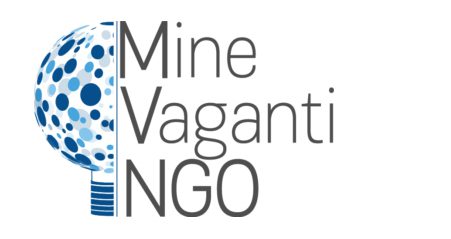“InSPORTation” is an initiative of organizational development enabling the applicant organization Asociatia “Liber la Educatie, Cultura si Sport” (LECS) to employ the educational potential of Sport to the promotion of upskilling and entrepreneurial development of disadvantaged Adult categories (low-qualified Adults from disadvantaged rural areas and urban suburbs, migrants) as an instrument of empowerment, employability (also in terms of entrepreneurial engagement) as well as social inclusion.
The applicant organization has achieved substantial results in the use of Sport as an educational tool for the empowerment of young people (also disadvantaged categories of NEETs and migrants) and intends to expand the variety and audience of its offer, at the local and European levels, in the Adult field.
The project is inspired by an assessment of the development needs of the organization for the above identified purpose as well as tailored to answering the challenges highlighted by a specific context analysis.
Eurostat (2017) quantifies in 18,243 million the number of unemployed in the EU-28 total population as of October 2017, making up 8,8% of the workforce. Females are more affected than men by the unemployment trends, with an average unemployment rate of 10% as compared with 8% for male workers.
Low-qualified Adults are particularly vulnerable to dynamics of long-term unemployment in the EU-28, with 53,6% of Adults in the lowest tiers of educational attainment (up to lower secondary education) unemployed in the EU-28. Eurostat findings show a substantial portion of the EU-28 population belonging to the low tier of educational attainment (20%), with an high proportion registered in Romania (20,5% in the 25-64 age-band). First-generation immigrants to Europe are particularly affected by dynamics of long-term unemployment and social exclusion due to a low level of qualifications compounded by cultural/language barriers.
The EC’s ”Communication on Developing the European Dimension in Sport” (2011) highlights the substantial contribution of Sport “to growth and jobs, with value added and employment effects exceeding average growth rates”, therefore endowing Sport with a specific relevance for the achievement of the objectives set forth in the EU 2020 strategy.
Sport represents an educational avenues for the development of positive attitudes and skills (soft and transversal) useful in the context of employability as well as forming part of an entrepreneurship-oriented mindset (cooperation, leadership, planning, flexibility, risk-taking, fair play). At the same time, in its quality as universal language crossing social and cultural divides, the educational use of Sport is particularly suited to overcoming the educational constraints affecting disadvantaged categories as well as to bringing positive messages across cultural barriers and belongings.
The appreciation of the positive relationship between Sport and the development of the employability/entrepreneurial potential of young people at the level of EU policies and of the European NGO sector points to the need of compounding the educational dimension of Sport through exploring actions and strategies for its most profitable adaptation to the context and target specific challenges of the Adult field.
Through the present project, LECS aims at laying the grounds for being actively involved in delivering on this needed approach in the local and European dimensions.
“InSPORTation” objectives are the following:
– Increasing organizational capacities in the design and management of project proposals in the Erasmus Plus Adult field, with a particular focus on KA2 and on the use of Sport as a tool of upskilling and entrepreneurial development of disadvantaged Adult targets.
– Acquiring methodologies and professionalism in the use of Sport, in combination with Non Formal Education (NFE) methodologies as an instrument of education fostering the social inclusion, employability and entrepreneurial attitudes/skills of disadvantaged Adult targets.
– Enhancing the range of targets and educational offer of the organization through regular activities, at the local and European levels, connecting the educational potential of Sport with the specific learning needs and constraints of disadvantaged Adult targets.
– Fostering the European dimension of LECS by developing long-term partnership arrangements and regular exchange of knowledge/good practices with established European NGOs working in the Adult field.
– Developing specific Erasmus Plus project initiatives in the Adult field focused on the educational use of Sport as a tool of social inclusion, employability and entrepreneurial development of disadvantaged Adult categories.





